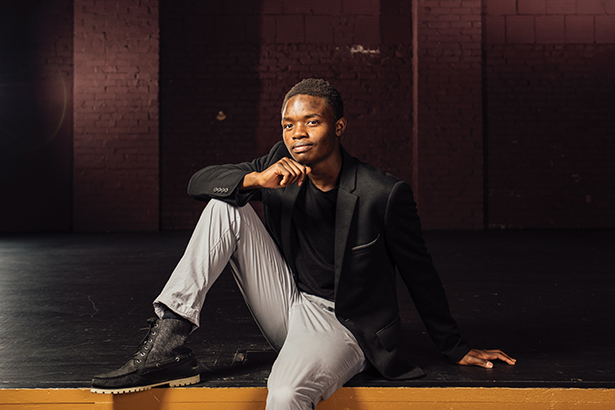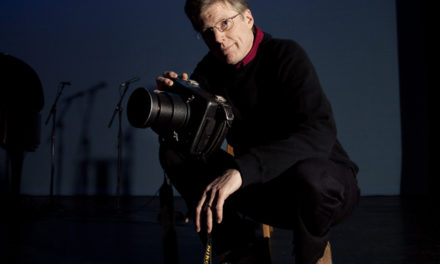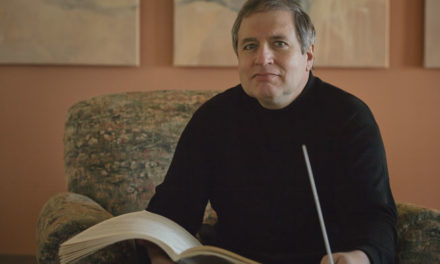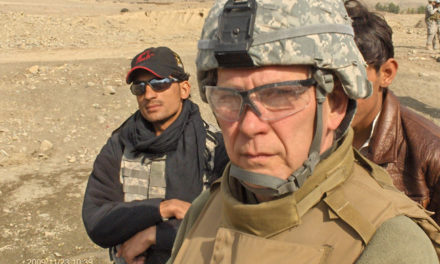
Stanley Njuguna on the stage of the Buskirk-Chumley Theater. Photo by Stephen Sproull
BY PETER DORFMAN
Hours after Donald Trump was sworn in as president, a boisterous crowd packed the Buskirk-Chumley Theater in downtown Bloomington for the progressive Inaugurate the Revolution rally. Most of the presenters—academics, clergy, and activists—sported at least a few gray hairs. But the headline speaker, charged with sending the crowd off electrified and primed for political action, was a 20-year-old Indiana University sophomore named Stanley Njuguna.
Njuguna has been a regular at Bloomington protest events. Most notably, he was a featured speaker at the July 2016 Black Lives Matter rally on the downtown Square. As the nation absorbs changes wrought by the Trump administration, protests and rallies are becoming regular occurrences, and Bloomingtonians can expect to hear a lot more from Stanley Njuguna.
“Growing up in Muncie, Indiana, and seeing the impact of the financial crisis, I saw that it’s impossible to separate life from politics,” he explains.
Njuguna’s parents emigrated from Kenya. His father, an auto worker at a Toyota plant, attended college at Ball State University when Njuguna was in his early teens. “I was exposed to a lot of powerful ideas,” he recalls. “My dad always insisted I understand the importance of history and politics.”
He got his start in politics as a volunteer for the Bernie Sanders presidential campaign. “That catapulted me into the activism I’m involved in now,” Njuguna says. “I was thirsting for advocacy. The campaign gave me a chance to express that.”
His talent for oration was first recognized in 2015 when the IU debate team competed at Vanderbilt University. The team lost, but Njuguna shone as an individual performer. He gave his first public speech at a Sanders rally in Indianapolis in January 2016. His speech, available on YouTube, decries Indiana’s low turnout for the 2014 midterm elections.
While he acknowledges the importance of protest, Njuguna argues that it must lead to more direct action, especially at the local level. “We need to elect more progressive city council people,” he says. “We need more direct democracy. And if we’re blocked on that front, then strikes, walkouts, and boycotts. The next four years are really going to test us.”
As a leader of Students Against State Violence, a campus advocacy group, Njuguna works to influence university policy. His future plans include law school and a career in public interest law, and eventually politics. “I’m hell-bent on doing something big,” he says.














